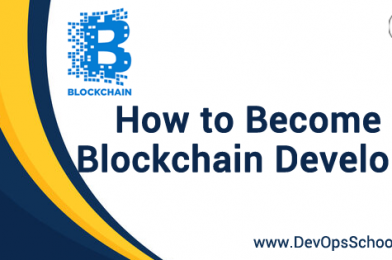
Who is DevSecOps
The term DevSecOps is a collaborative working method that implements security over development and operations teams. This collaboration aims to reduce the risks, into all stages of DevOps projects.
DevSecOps believes that security should be everyone’s priority whoever is working on the project. It will help to prevent the risks which will enhance the experience of customers when they will use the product after deployed in the market.
In other words, DevSecOps engineers ensure that the organization’s network and IT infrastructure remain free from security flaws.
DevSecOps keep their eye on all stages whether it is development, testing, monitoring, etc for security purposes, which is why many DevSevOps choose to pursue an on-campus or online master in computer science.
The DevSecOps engineers must be aware of specific toolsets like Docker, Jenkins, Java, Python, Perl, Ruby, Scripting YAML, DAST (Dynamic Application Security Testing), SAST (Static Application Security Testing).
What does a DevSecOps engineer do?
- Process monitoring
- Writing risk analyzes
- Incident management
- Testing, selection, and implementation of technologies, tools, and working methods
- Automation of security controls
- The maintenance of the system and the external and internal computer network of the company
- Control and management of security operations
- More broadly, they participate in the construction of a “safety culture” within the company by supporting the various teams and customers in the implementation of good safety practices.
- Provide packaging/deployment capability to deliver products to point of need, including multiple cloud-based solutions.
- Support multiple agile teams across various platforms, environments, and instances
- Incorporate best practices to increase the quality & velocity of deployments
- Implement security best practices and configuration management
- Increase system performance with a focus on high availability and scalability
How to Become a DevSecOps Engineer?

To be a DevSecOps engineer requires a set of skills and practical experience. DevSecOps engineers should aware of how security impacts each stage of the development pipeline and the finished product or service.
Of course, soft skills also matter to build better communication between team members to work effectively with each other.
The work of a DevSecOps Engineer is like many other IT security professional roles but it is a little dia different in terms of DevOps.
Both IT security professionals and DevSecOps engineers use distinctive best practice tools and methods like cybersecurity software, threat modeling, and risk assessments to recognize and analyze threats.
As a role of DevSecOps in projects, security isn’t an afterthought but is placed into the software at the time of the development, by using secure coding.
During development, the software is attacked to find vulnerabilities, because it is opposed to running a scan once it is created.
Automation tools play a key role to detect vulnerabilities, so DevSecOps should aware of such toolsets.
Some skills that are required:-
- Should have knowledge of the DevOps culture and principles.
- An understanding of programming languages such as Docker, Jenkins, Perl, Java, Python, and PHP would be helpful.
- Strong teamwork and Soft skills (communication skills).
- Should have knowledge of threat modeling and risk evaluation techniques.
- Up-to-date knowledge of cyber security threats, current best practices, and the latest software.
These skills can be obtained by either having trained through any institute that provides training or course or directly from organizational training during job roles.
Qualification and knowledge
- Should have experience and knowledge of programming languages and automation tools.
- People should have technical degrees such as engineering or computer science.
- Getting certifications from a well-known platform will help you to get into this role even without having a technical degree.
- Experience with common DevOps related tools, such as:-
- Jira
- Confluence
- Jenkins
- Artifactory
- GitHub
- Docker
- Kubernetes
- Ansible
- Terraform
- Should have experience with programming and scripting languages, such as C/C++, C#, Python, JavaScript, PowerShell, Bash, etc.
- Should have experience with virtualization technologies on-premise or cloud-based services such as Microsoft Azure, AWS VMs, VMware vCenter/ESXi, and Hyper-V.
Salary insights of a DevSecOps Engineer
The average salary of DevSecOps in India is ₹ 1,500,000 per year or ₹ 769 per hour.
Entry-level positions start with Rs 1,400,000 per year, while experienced workers can make up to Rs 2,400,000 per year.
Training Place
I would like to tell you about one of the best places to get trained and certification in DevOps, DevSecOps, and SRE courses is DevOpsSchool.
This Platform offers the best trainers who have good experience in DevOps and also they provide a friendly eco-environment where you can learn comfortably and free to ask anything regarding your course and they are always ready to help you out whenever you need, that’s why they provide pdf’s, video, etc. to help you.
They also provide real-time projects to increase your knowledge and to make you tackle the real face of the working environment. It will increase the value of yours as well as your resume. So do check this platform if you guys are looking for any kind of training in any particular course and tools.




